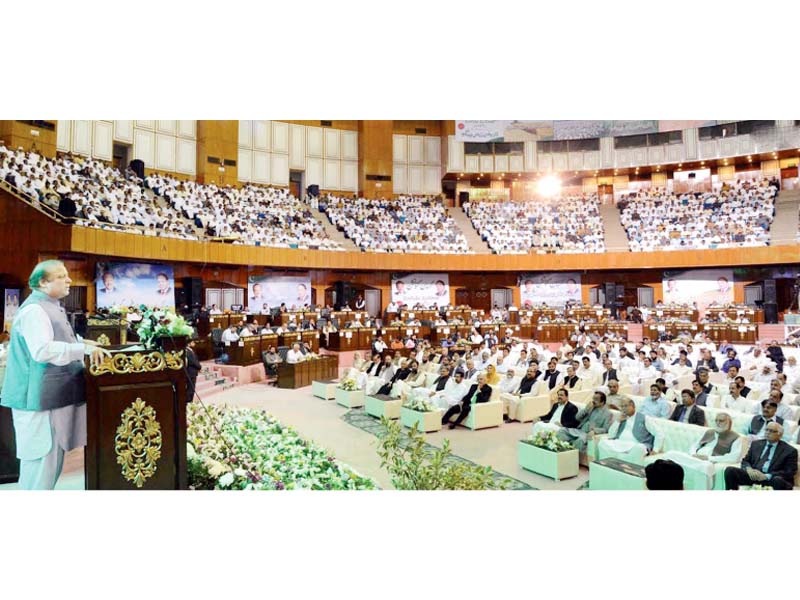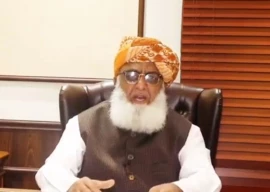
Prime Minister Nawaz Sharif on Tuesday announced a multi-billion-rupee bailout package for farmers in a bid to shield them against the financial impact of the prolonged slump in agricultural commodity prices.
The Rs341 billion bailout, unveiled by the premier at a Kisan convention in Islamabad, has already been approved by the federal cabinet. It focuses on direct cash transfers to small farmers, in addition to subsidies on financing, insurance, and input costs to help farmers with their shrinking margins. While lower prices have been good for consumers in the form of lower inflation, they have had a negative impact on the incomes of the country’s more than 26 million farmers.
“The relief package has been designed in four parts. The first part is direct financial assistance for farmers; the second is relief in agricultural costs; the third is provision of agricultural loans; and the fourth being facilitating the process of obtaining loans,” said the premier.
The government has set aside Rs40 billion to pay direct cash grants of Rs5,000 each to rice and cotton farmers who own 12.5 acres of land or less. Another Rs25 billion has been allocated for providing subsidies on fertilisers, particularly urea. Premier Nawaz said that subsidised fertiliser would be made available to farmers next month.
In addition, the government will pay the insurance premiums for farmers who purchase crop insurance. It will also spend Rs14 billion in covering the interest costs of farmers who get loans to install solar tube wells, or install solar panels on their existing tube wells. The government will also reduce the already heavily subsidised power tariffs for tube wells. The government will bear the interest costs for up to seven years.
Another Rs30 billion will be spent on granting loans to 300,000 small farmers without any collateral. The government also announced a four-year income tax exemption for halal meat exporters.
The government has already removed or lowered tax rates on several input items for agriculture. For instance, import duties on agricultural machinery has gone down from 43% to 9%, and sales tax on many goods has been reduced from 17% to just 7%, while turnover tax on rice has been removed entirely.
The prime minister also characterised the government’s spending of Rs100 billion on land acquisition for construction of Diamer Bhasha dam as being supportive of agriculture, since it would allow both water storage and cheap energy production.
For rice traders, the government announced that the deadline for paying back all outstanding loans had been extended until June 30, 2016. Rice millers will also be exempted from turnover tax for fiscal 2016.
But the prime minister’s extraordinary measures for the agriculture sector were not enough for the Rice Exporters Association of Pakistan (REAP), the rice industry’s lobbying group. REAP Chairman Rafique Suleman went so far as to say that “there is no relief announcement for the rice export sector”.
“The only incentives that have been given are to growers. Exporters have been ignored, despite giving recommendations,” said Suleman.
He also heaped scorn over the notion that the Rs5,000 cash grants would solve anything for rice growers, saying that the grant was not enough for basmati farmers. He also said that a ‘support price’ of Rs1,600 per maund (40 kilos) is unrealistic for super basmati paddy rice, at a time when the prevailing market rate is Rs800 per maund.
Published in The Express Tribune, September 16th, 2015.

1732849469-0/women-in-male-field-(1)1732849469-0-165x106.webp)















COMMENTS
Comments are moderated and generally will be posted if they are on-topic and not abusive.
For more information, please see our Comments FAQ